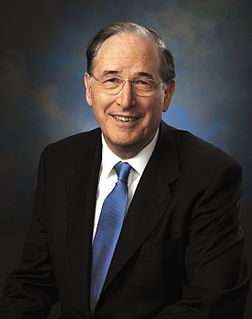A Quote by Mary Robinson
It remains the task of governments to implement the fundamental human rights standards which should influence all aspects of globalisation, including even trade talks, and to be answerable for this in a democratic way. The structure is international, but the accountability is national and I would like to see that accountability being more penetrating at regional and local level, especially in federal systems.
Quote Topics
Accountability
Answerable
Aspects
Being
Democratic
Even
Federal
Fundamental
Globalisation
Governments
Human
Human Rights
Implement
Including
Influence
International
Level
Like
Local
More
National
Penetrating
Regional
Remains
Rights
See
Should
Should I
Standards
Structure
Systems
Talks
Task
Trade
Way
Which
Would
Related Quotes
The international human rights framework is a vital component and engine for promoting global values. Governments have signed up to this international legal framework and we should hold them accountable, in all circumstances from environmental or labour standards, to trade talks, arms control and security issues as well as other international legal codes.
Human rights and international criminal law both illustrate the contradictory potential of international law. On one level, the imposition of human rights norms is a restraint on interventionary diplomacy, especially if coupled with respect for the legal norm of self-determination. But on another level, the protection of human rights creates a pretext for intervention as given approval by the UN Security Council in the form of the R2P (responsibility to protect) norm, as used in the 2011 Libyan intervention. The same applies with international criminal accountability.
The term 'human rights' has been too often associated with conditionality, and with concerns of developing countries that in order to benefit from open trade they would be required to implement immediately labour and environmental standards of a comparable level to those applied in industrialised countries. At the same time, debates about the primacy of trade as against human rights legal codes have contributed to maintaining the unfortunate impression that the two bodies of law are pursuing incompatible aims.
In human rights theory it is very important that governments still have the primary responsibility for the standards and provision of such services even if they no longer deliver them. They must insist that the private sector delivers without discrimination. So governments still have responsibility, including the need to influence business.
What we're seeing is an era where governments and huge organizations such as the IOC don't have accountability. They don't have accountability to the athletes they are supposed to be protecting and they don't have accountability to the truth. What we've seen out of Russia is a continual denial, no matter what has been presented. They are still blaming Grigory Rodchenkov as an individual who did this all on his own.
So much of our politics is stuck in patterns of response that aren't working. When student performance is declining in schools, we implement more controls, more testing, more "accountability," more rigor. We apply even more of those things, from security systems to control of students' behavior through pharmaceutical drugs. That's a situation in which doing is only making things worse. You may have to go through a phase of de-programming, letting go of old habits, coming to stillness, before you can even see what the pattern of action was, and what alternatives there might be.
Governments have been ceding power to big multinational corporations in the market. We see the manifest in a variety of ways. Where governments are giving up power to big international institutions like the World Trade Organization or NAFTA, which are disabling governments' ability to protect the rights of their own people.






























